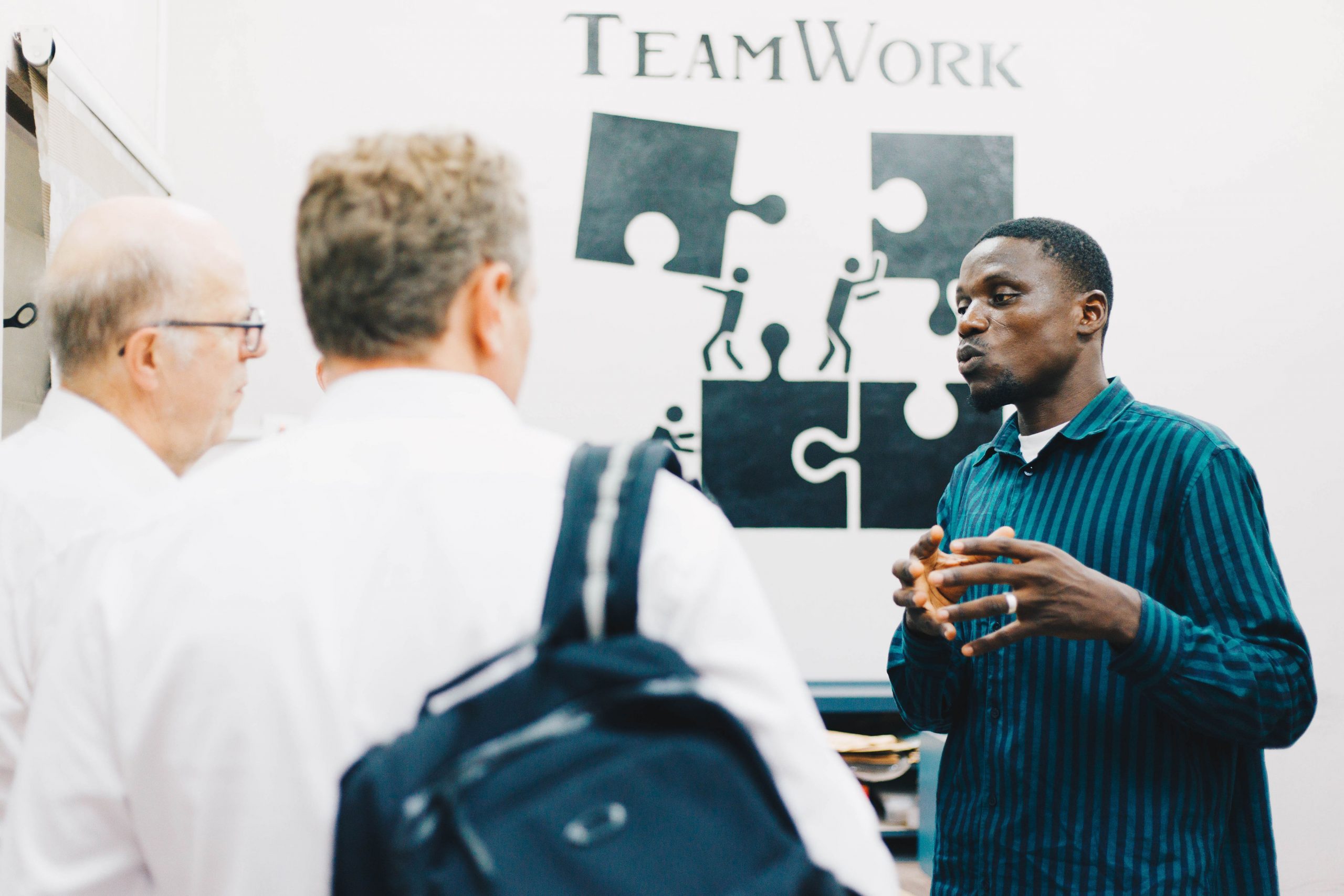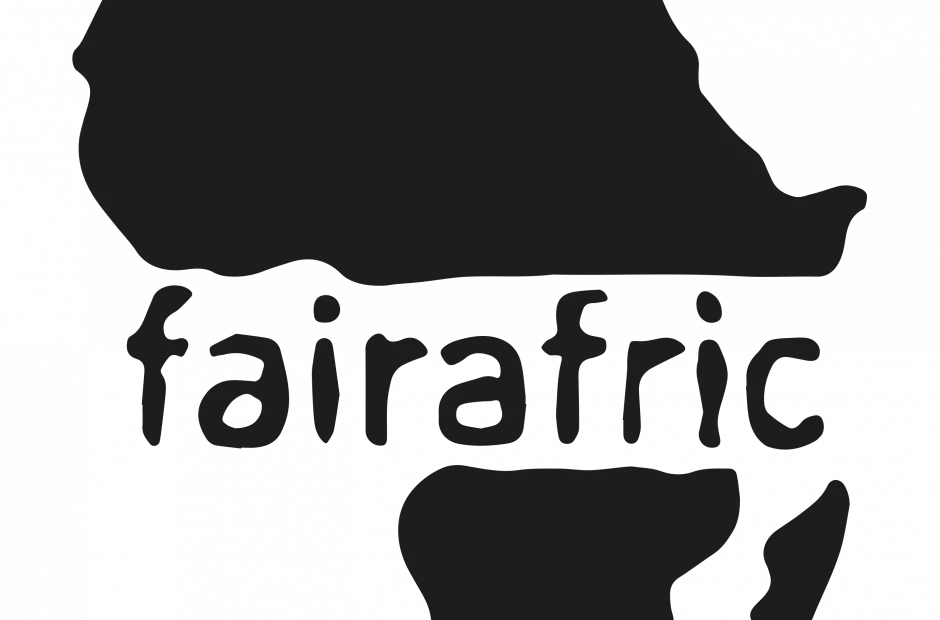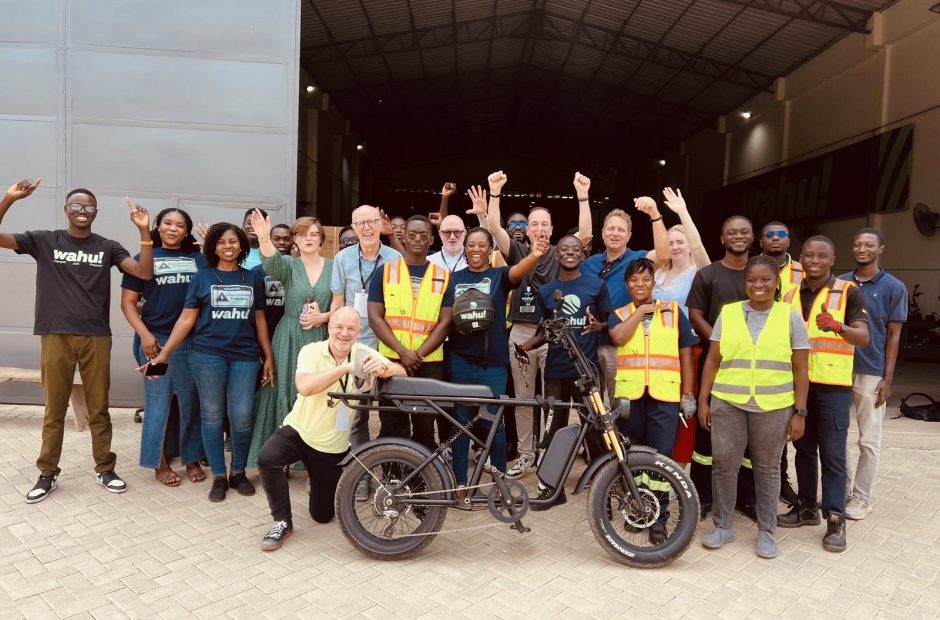Why Ghana?
Ghana was our first destination – and intentionally so. Every year, we plan to visit our project countries to get to know startups, social initiatives, cultural developments, and local ecosystems firsthand. Our first stop was in Accra in March 2025 – with our Investment Analyst Vanessa Ennen, Managing Director Lutz Hethey, Entrepreneurs & Partners Karsten Wulf, Gunnar Sander, and Bert Mutsaers, our newest team member Caroline Flohr (Impact & Communications), and our Tax & Legal expert Klaus Stein.
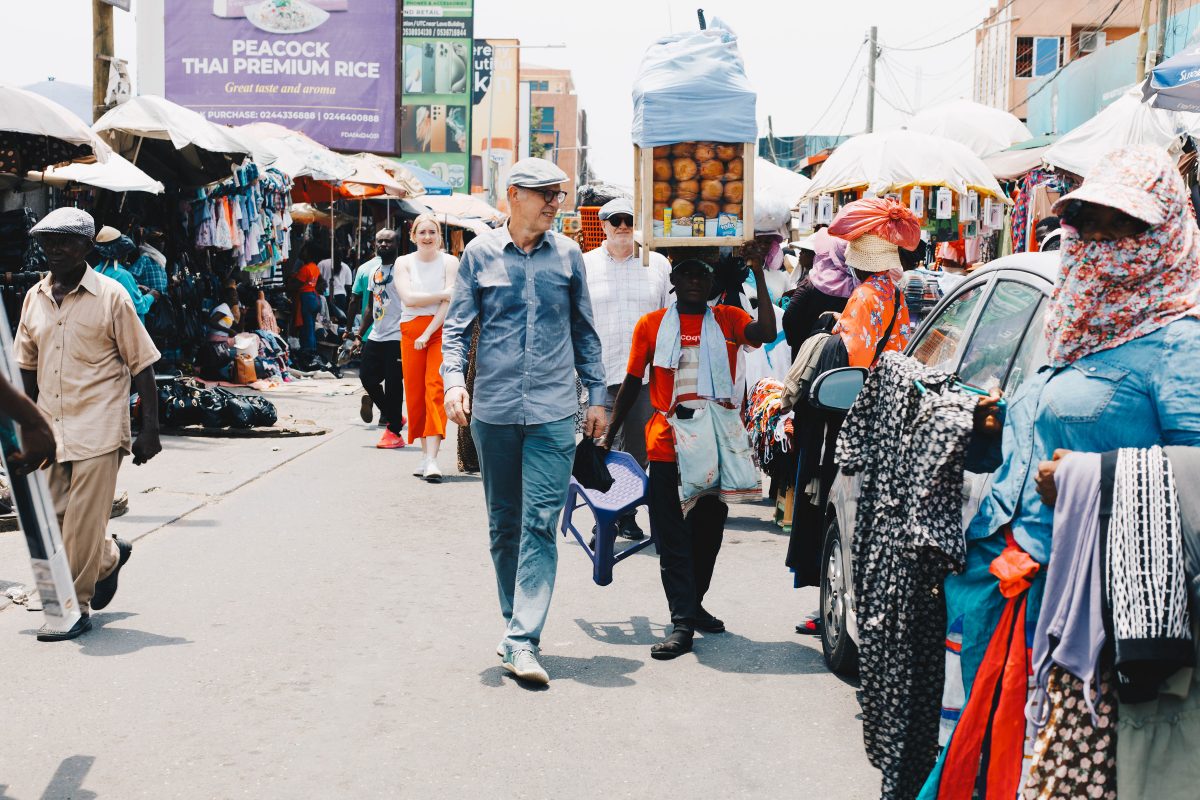
Lutz Hethey at Makola Market @blackimagegh
Why Ghana? Why Ghana? Because it brings together many of the factors shaping Africa’s future: economic momentum, entrepreneurship, cultural depth – and significant challenges. The population is growing rapidly and is expected to double by 2050. More than half the population is under 25, and youth unemployment exceeds 20%. Ghana doesn’t need outside aid – it needs investment in employment, the middle class, and entrepreneurial solutions.
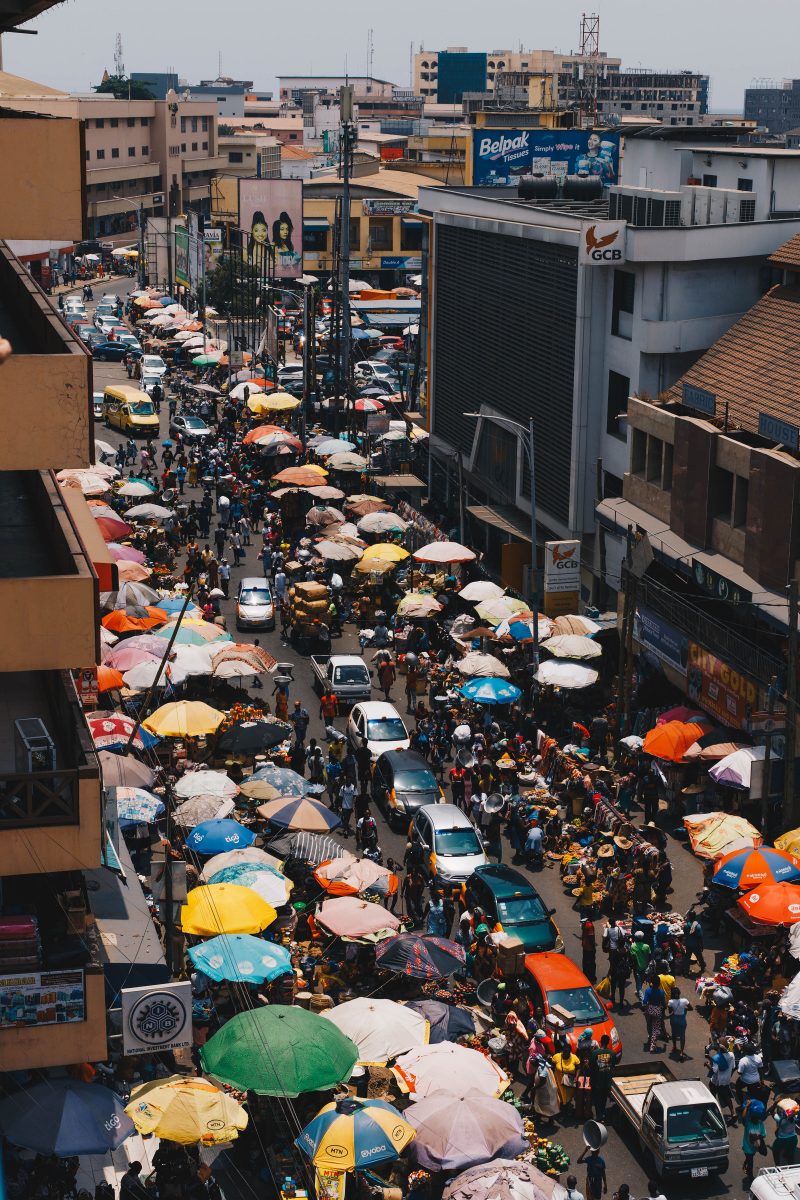
@blackimagegh
What struck us immediately: energy, movement, pace. In the evenings, Accra comes alive – with live music from jazz to funk, and street food that packs a punch even in its mildest form. During the day? The Makola Market – one of the country’s most well-known informal markets – shows how commerce thrives beyond formal structures. From the top of a nearby parking deck, the activity below looks like organized chaos: fast, efficient, and relationship-driven. It’s all about who knows whom, and who brings what to the table. Every move has its place, every network counts. It quickly became clear: in a market with a small upper class, B2B and B2B2C models are most viable. Innovation here doesn’t revolve around lifestyle – but around practical solutions and scalable partnerships.
Contrasts That Stick
Amid the many positive impressions, we were also confronted with sharp contrasts. One of the most striking: Agbogbloshie – one of the largest e-waste dumps in the world, located right in Accra. More than 40,000 people live and work there under extreme conditions, often without protection and surrounded by toxic smoke from open-air recycling fires. The polluted lagoon stretches all the way to the sea.
The issue of waste is visible throughout the city. Plastic lines the streets and beaches, discouraging many Ghanaians from entering the sea. A large share of this waste comes from the Global North – dumped cheaply, yet left untreated. Accra isn’t a polished backdrop, but a city full of challenges. Anyone looking to invest here must look closely – and be ready to contribute to real solutions.
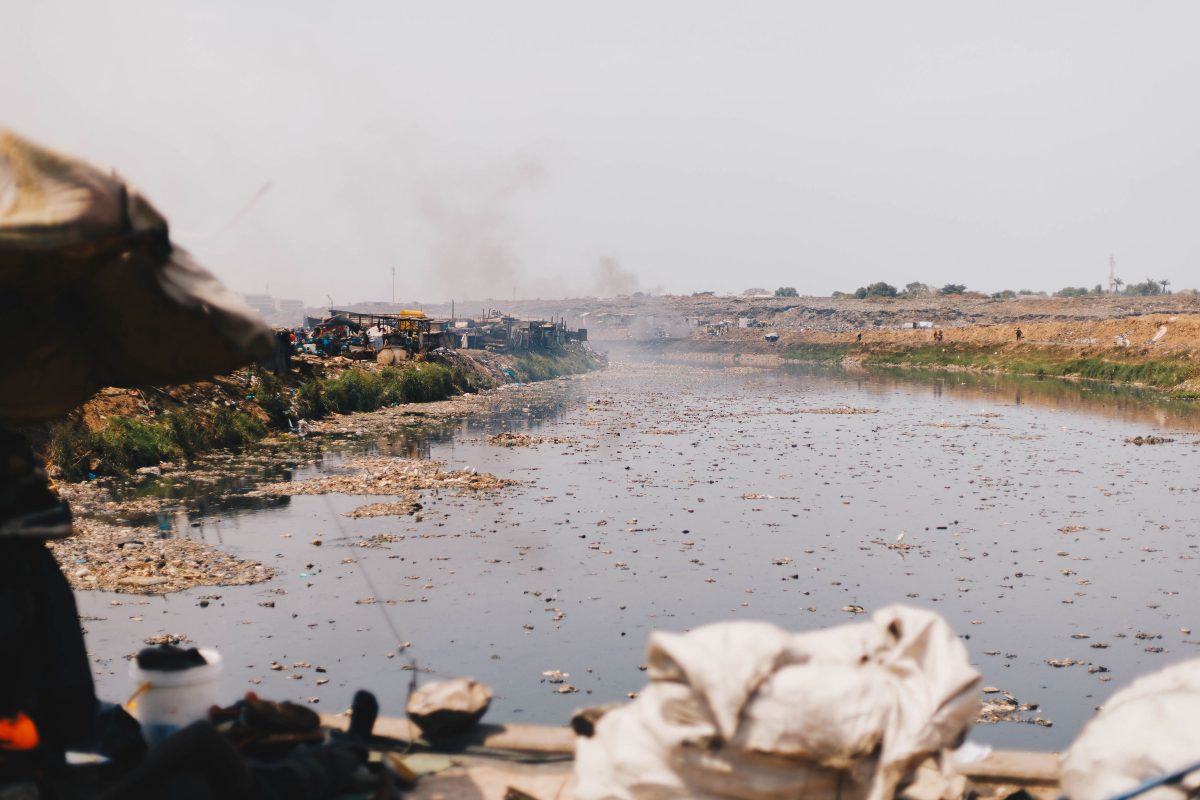
Trash Lagune in Agbogbloshie @blackimagegh
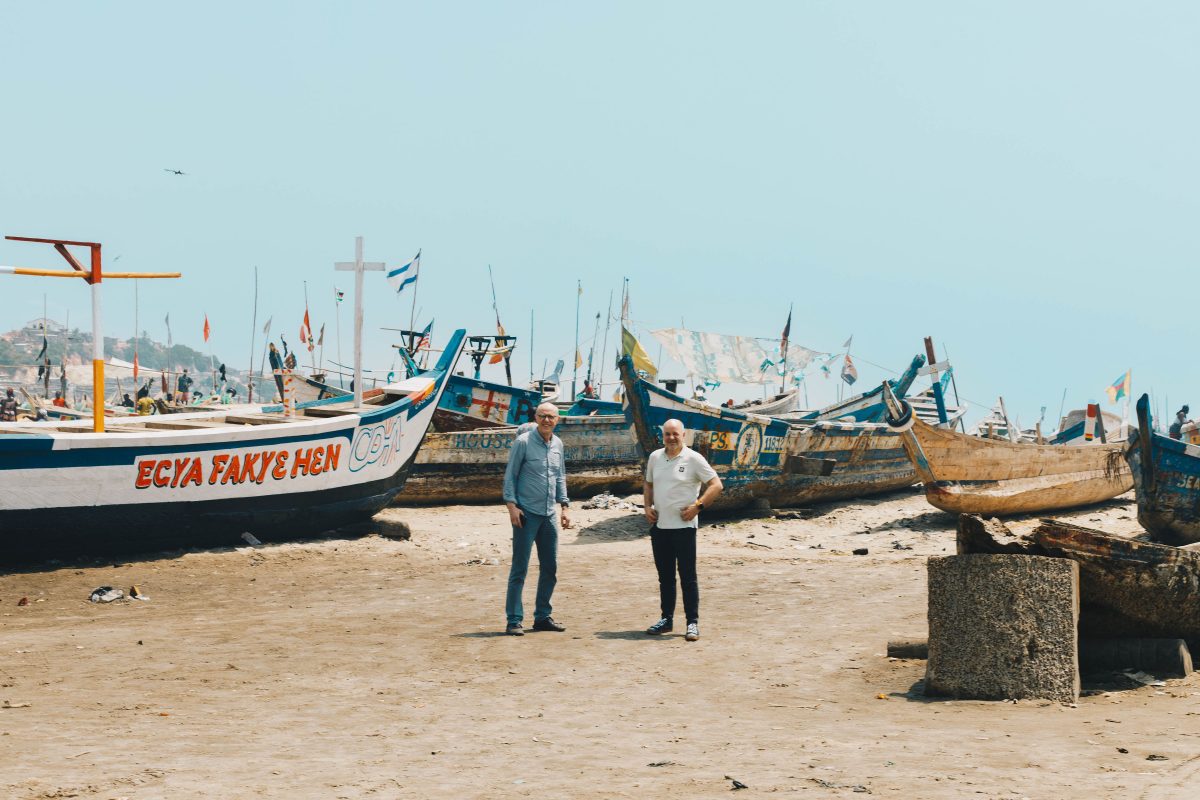
Lutz Hethey and Bert Mutsaers in the old harbour @blackimagegh
Startups with Substance – Our Highlights from Accra
In Accra, we met entrepreneurs who aren’t looking for aid – they’re looking for strong partners. Three stood out:
Wahu!
Wahu! – develops electric bikes designed for everyday life in Accra. Their “lease-to-own” model allows young people to work for delivery services like Uber, Bolt, or Hubtel with the option to eventually own the bike. Locally built, the bikes come with an app that handles support and maintenance – enabling both mobility and independence.
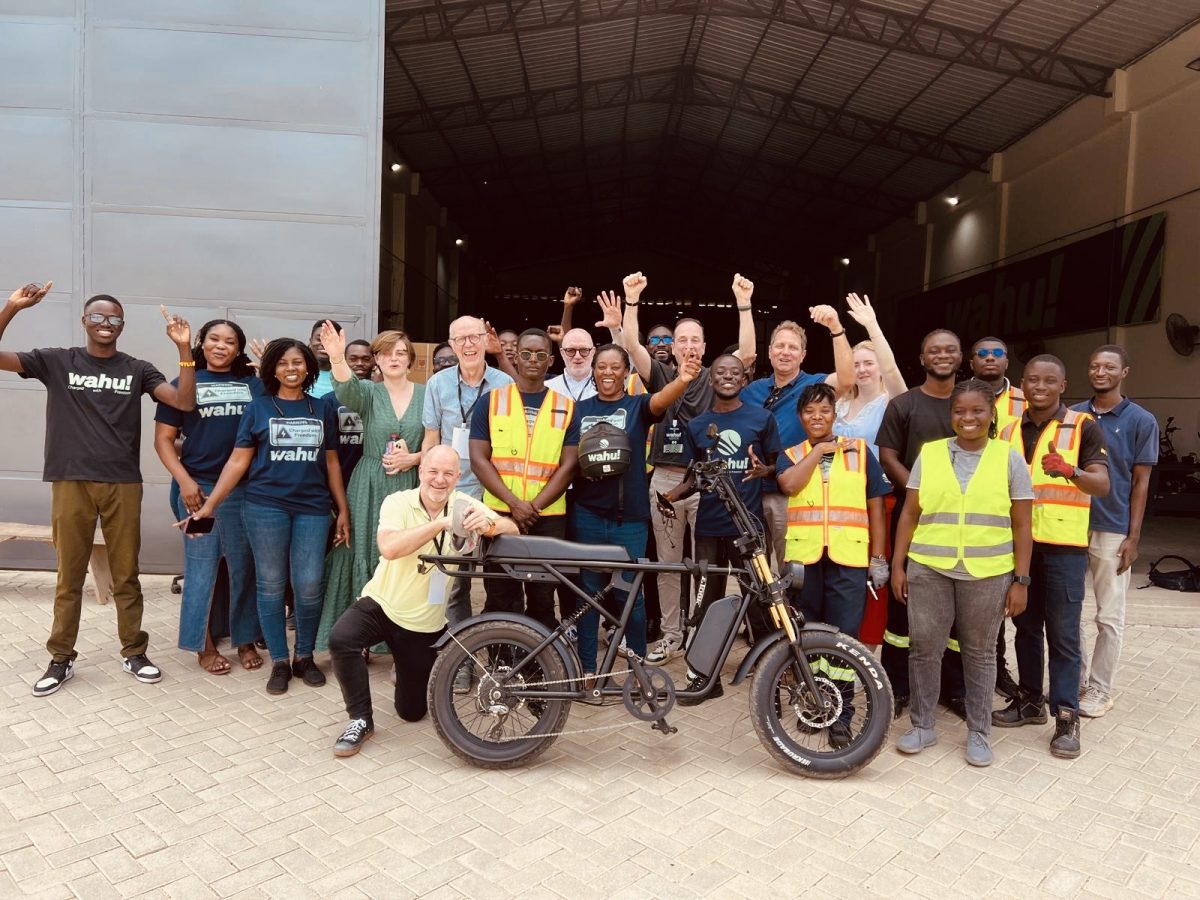
Fair Equity at Wahu!
Affinity
Affinity –brings banking to people and businesses that previously had no access. Accounts, loans, and savings plans – all digital, simple, and scalable. Especially for small and medium-sized enterprises, this model offers real leverage. Since its launch in 2024, Affinity has acquired over 50,000 users.
Tendo
Tendo is a platform that enables people to resell products online—without needing their own inventory or startup capital. More than 10,000 resellers are already using the system. Logistics are handled by an external partner, and the entire transaction process is digital. Especially in countries with informal labor structures, Tendo offers an easy entry point into entrepreneurship.
Yemaachi
Yemaachi is a biotech startup with the goal of collecting African genomic data and making it usable for medical research. With a network of hospitals in Ghana, Nigeria, Kenya, and Senegal, and over 15,000 data sets, they aim to drive new solutions in precision medicine—while bringing African perspectives into global pharmaceutical research. In 2024, the company generated approximately $4.5 million in revenue.
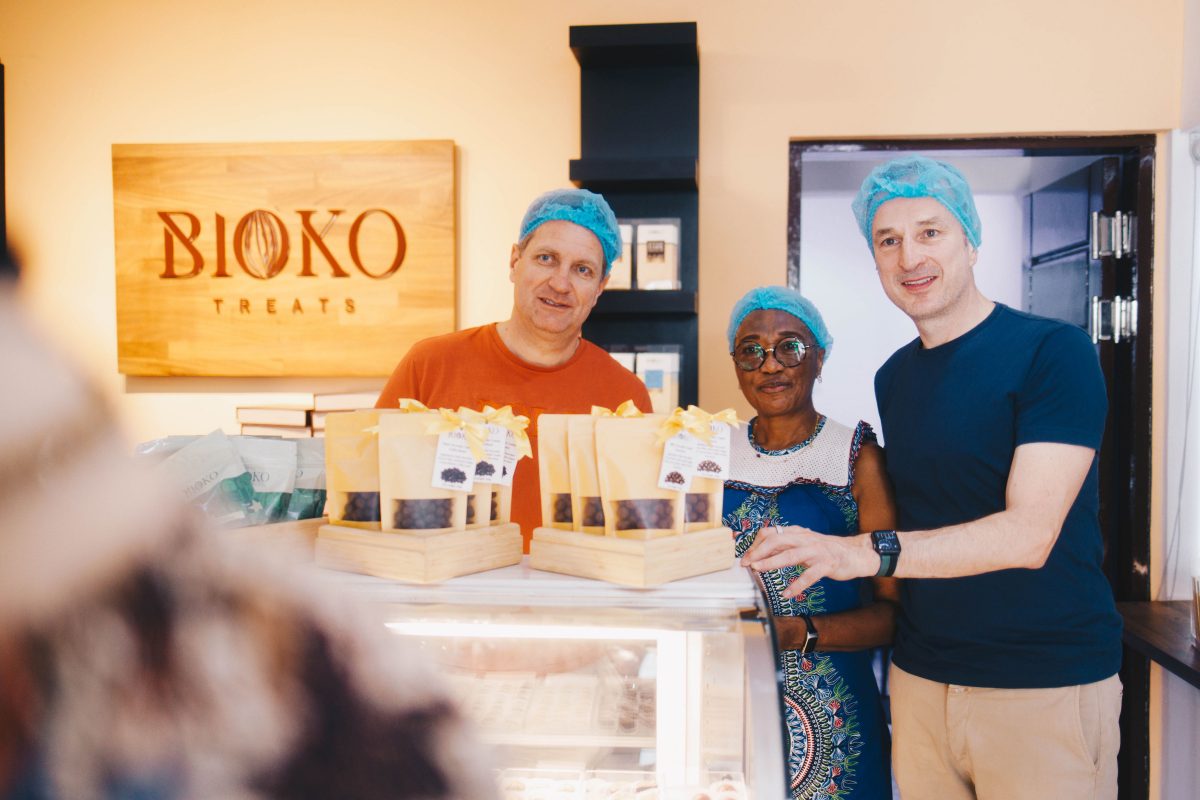
Gunnar Sander, Jeanne Donkoh and Karsten Wulf at Bioko Treats @blackimagegh
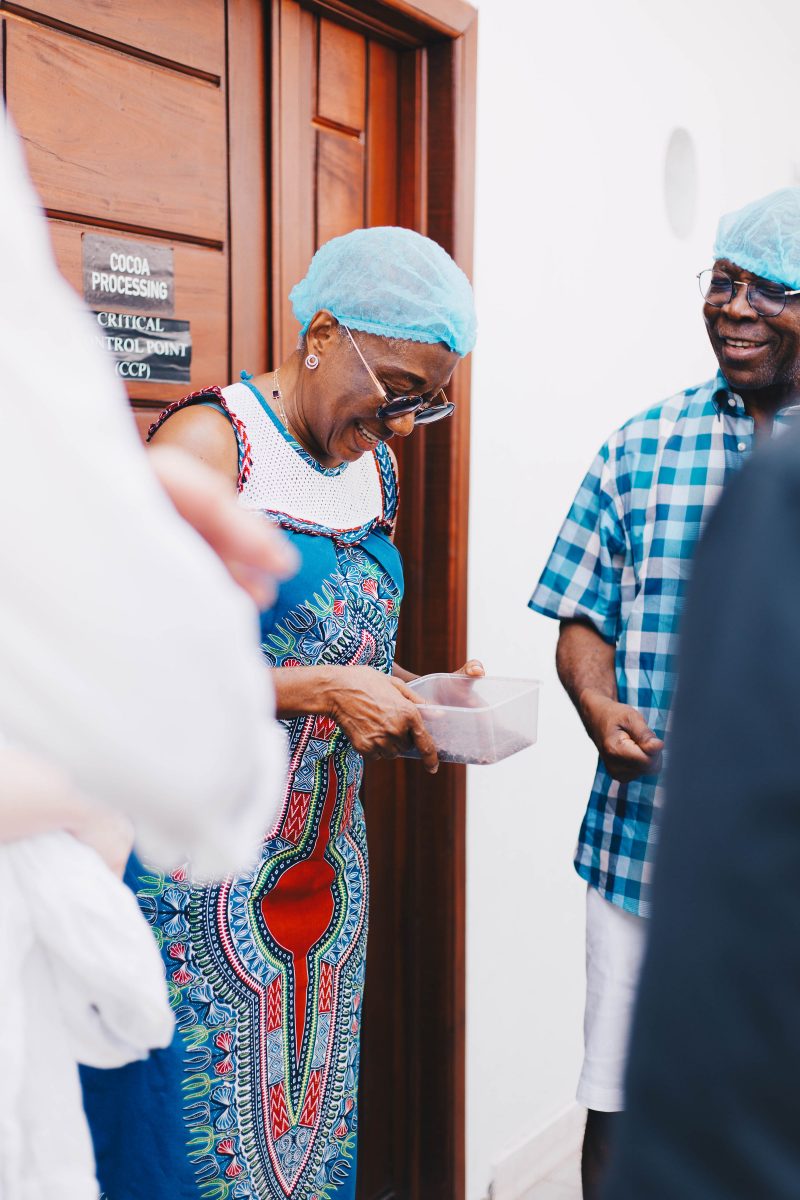
Jeanne Donkoh (Founder of Bioko Treats) showing the fair equity team raw cocoa nibs @blackimagegh
BioKo Treats
BioKo Treats – produces high-quality chocolate from locally sourced cocoa – handcrafted and rooted in the region. Founder Jeanne Donkoh launched the business in her early sixties after a long career in the hotel industry. Today, BioKo stands for local value creation, female leadership, and growth: with €130,000 in revenue in 2024 and a goal to scale up to 25 tons of annual production.
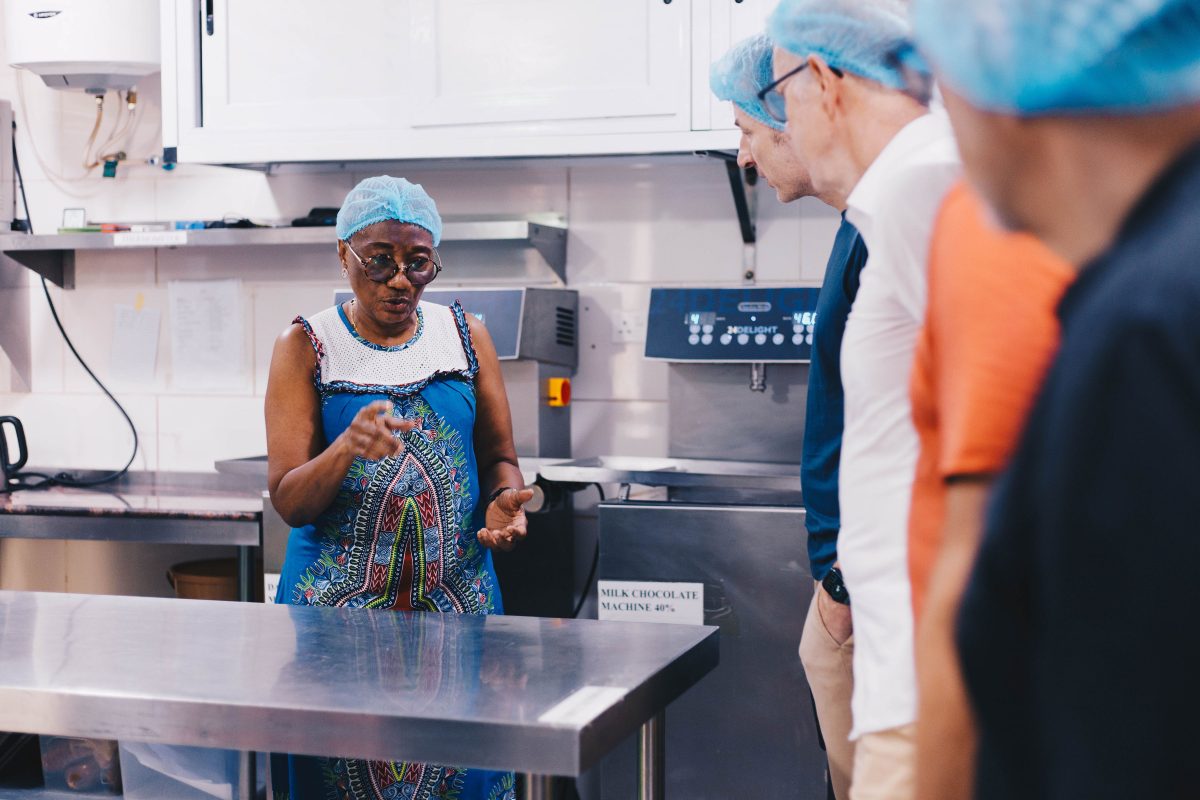
Jeanne Donkoh showing fair equity the chocolate factory @blackimagegh
Ecosystem & Network: Learning from the Best
A special moment was our meeting with Lofty Inc.—an experienced VC fund focused on Africa. Founder Idris Bello shared insights into key success factors and challenges: capital alone is not enough. What’s needed is strategic support, trusted networks, and experienced founders. Currently, 83% of VC funding in Africa goes to Nigeria, Egypt, Kenya, and South Africa—Ghana is only slowly coming into focus. That’s why initiatives like Impact Hub Accra are so important: they connect talent, support startups, and bring international expertise into the country. Also noteworthy: PivotVC—a venture studio that not only invests but actively helps build startups.
Social Impact: Education, Health, Agriculture & Creativity
Our journey also took us beyond the city—to places like the Baobab Children Foundation, which combines ecological farming with education and social responsibility. Their Moringa production is not only sustainable but also economically significant—with organic certification and a strong focus on youth empowerment.
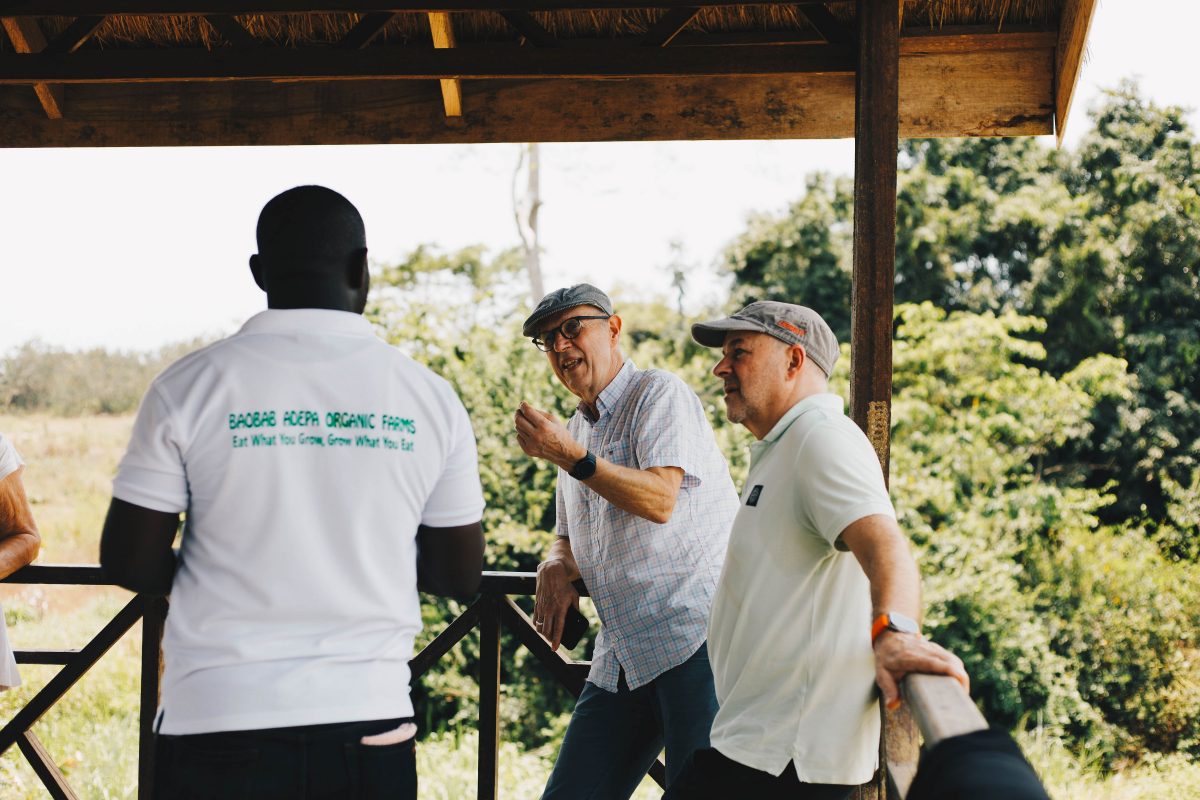
Lutz Hethey and Bert Mutsaers at the Baobab Farm @blackimagegh
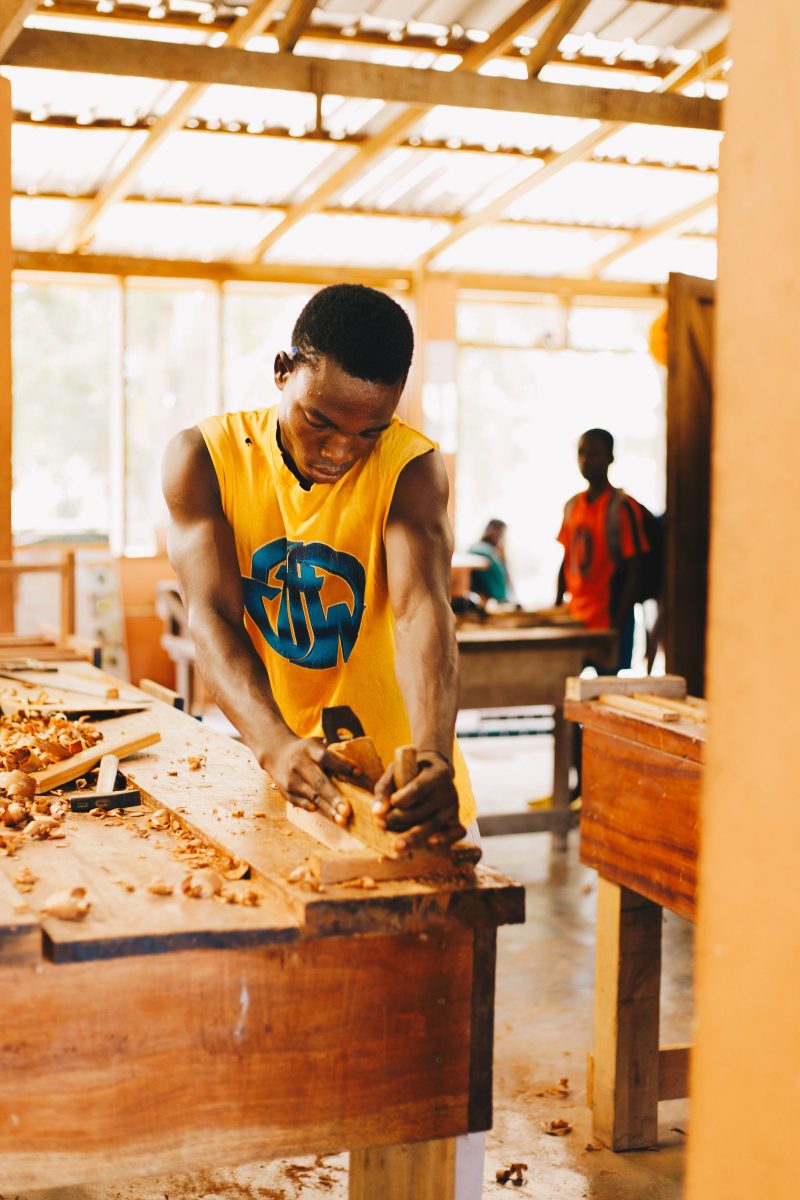
Baobab carpentry school @blackimagegh
We were also impressed by Elucid, a social healthtech company that leverages health data to make impact measurable along supply chains. Originally launched in Madagascar, the team now works with chocolate producers to provide healthcare services for farmers—creating real value for everyone involved.
Another powerful example: Mable Preach. Known for her performances on the stages of Hamburg and Hanover, the Ghanaian-German director is building an artist village in Tamale that brings together the diaspora, local creatives, and people with disabilities. At the same time, she runs BLKSTR NOIR, a creative hub in Accra that gives young people access to artistic expression.
These Impressions Shape Our Next Steps
Now it’s time to take the next step: to develop the right partnerships, build structures, and design processes for our investments. We rely on the people on the ground – their expertise, their networks, their understanding of the market. We don’t have to do everything ourselves. On the contrary: those who invest at eye level listen first and act in tandem. That’s why we focus on collaboration and B2B partnerships – just like at the Makola Market: every move has its place, every network counts.
Conclusion: Why We’ll Be Back
This journey wasn’t just a change of perspective – it was the beginning of something deeper. Ghana showed us what’s possible when entrepreneurship, capital, and cultural intelligence intersect. We’ll be back – not as spectators, but as investors. We’re convinced: Ghana meets the criteria for our investment strategy, and we’re preparing to launch our first local partnerships soon.
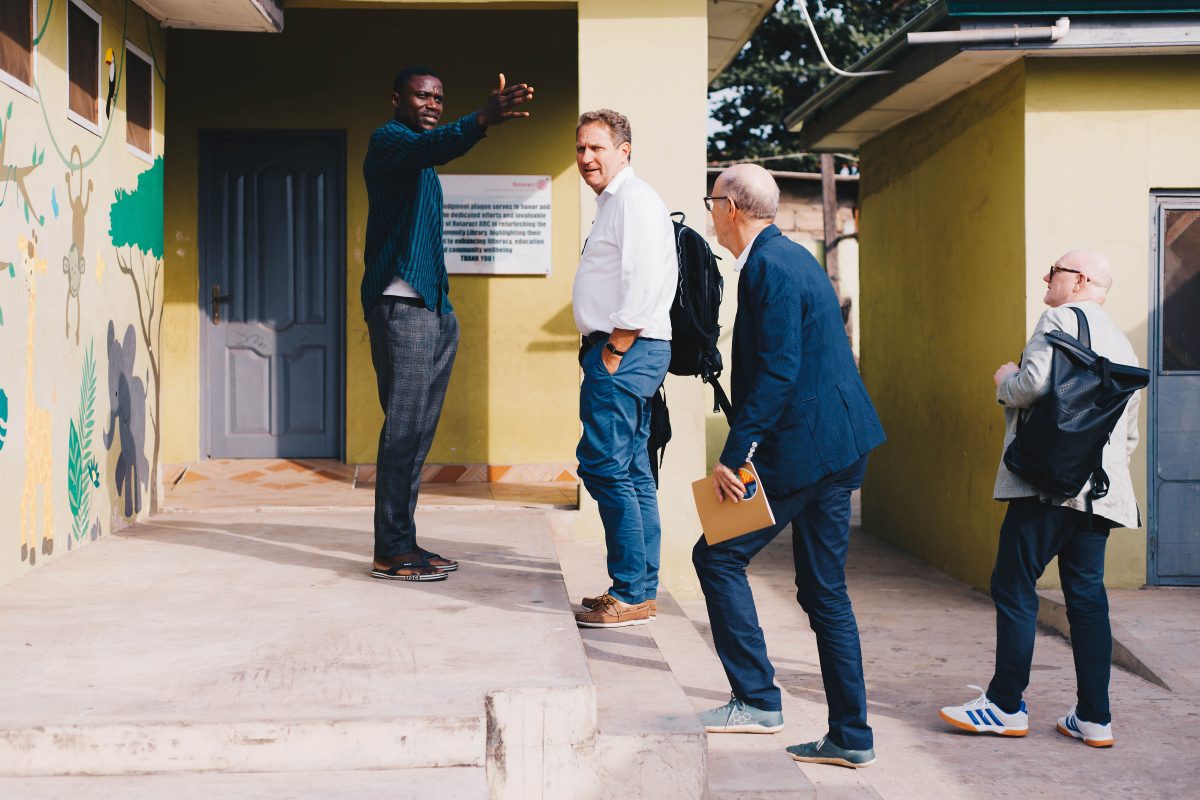
Gunnar Sander, Lutz Hethey and Klaus Stein at a Start-Up Visit @blackimagegh
Witten by: Caroline Flohr
Photos by @blackimagegh

